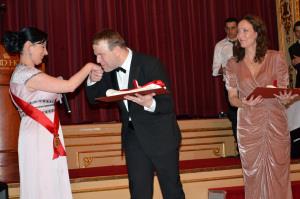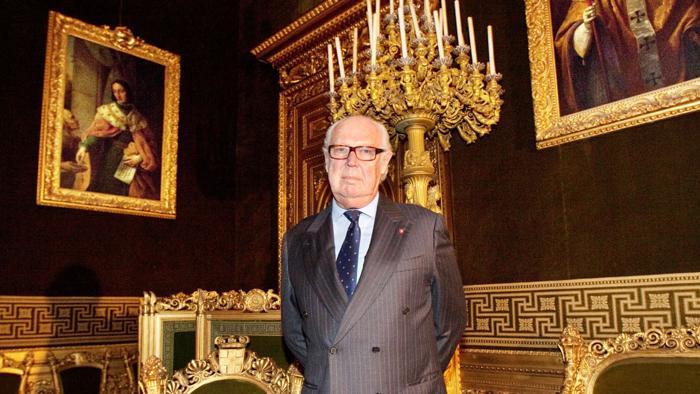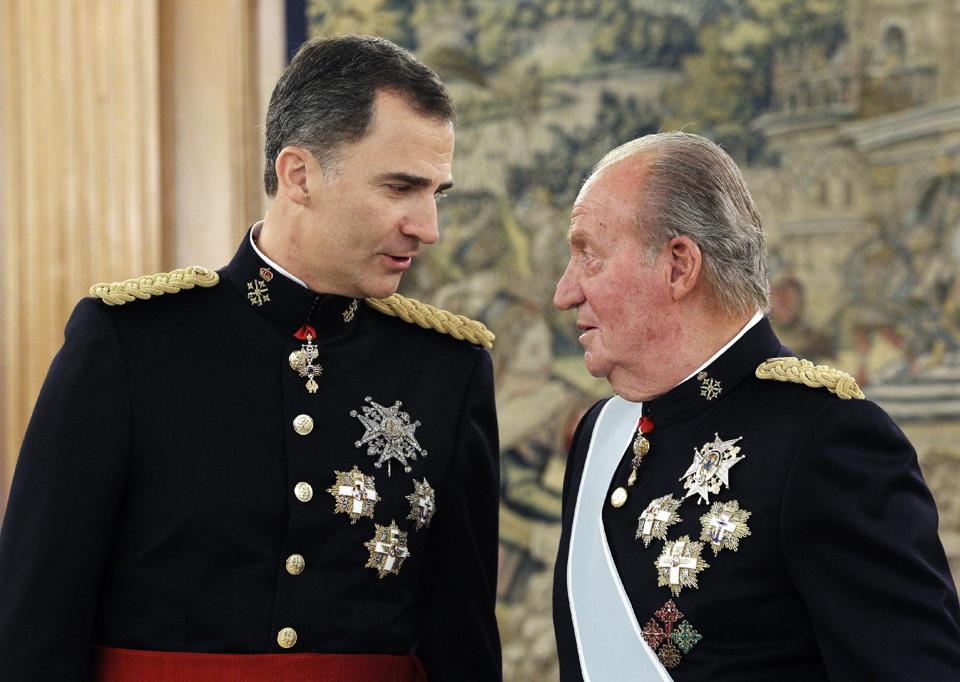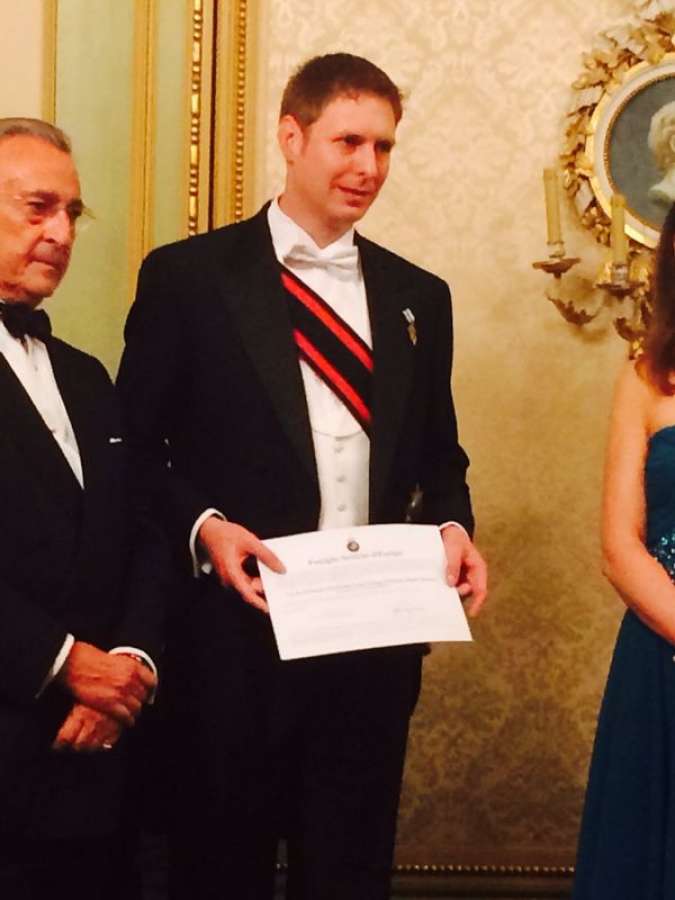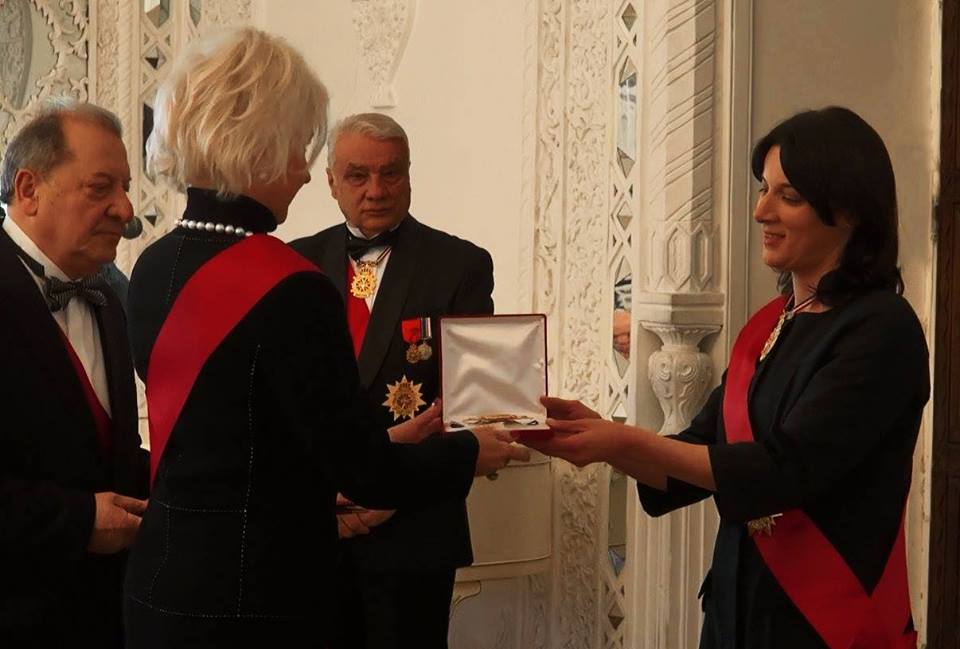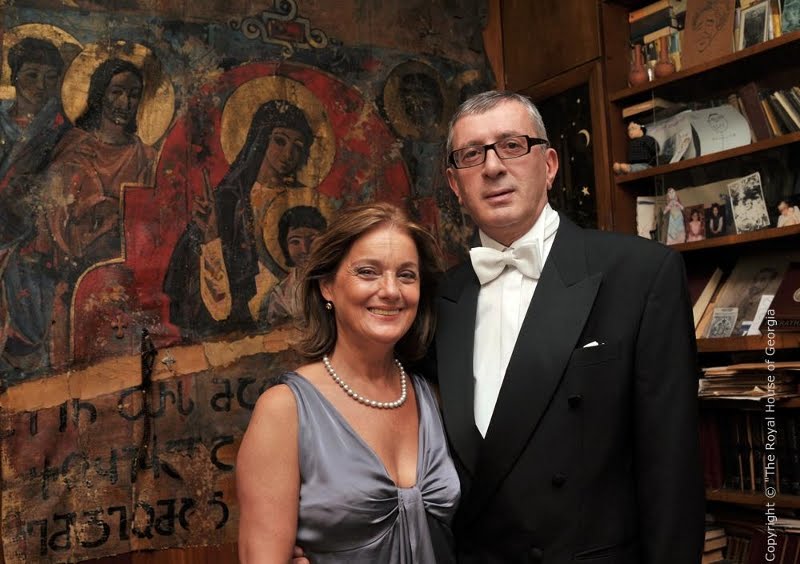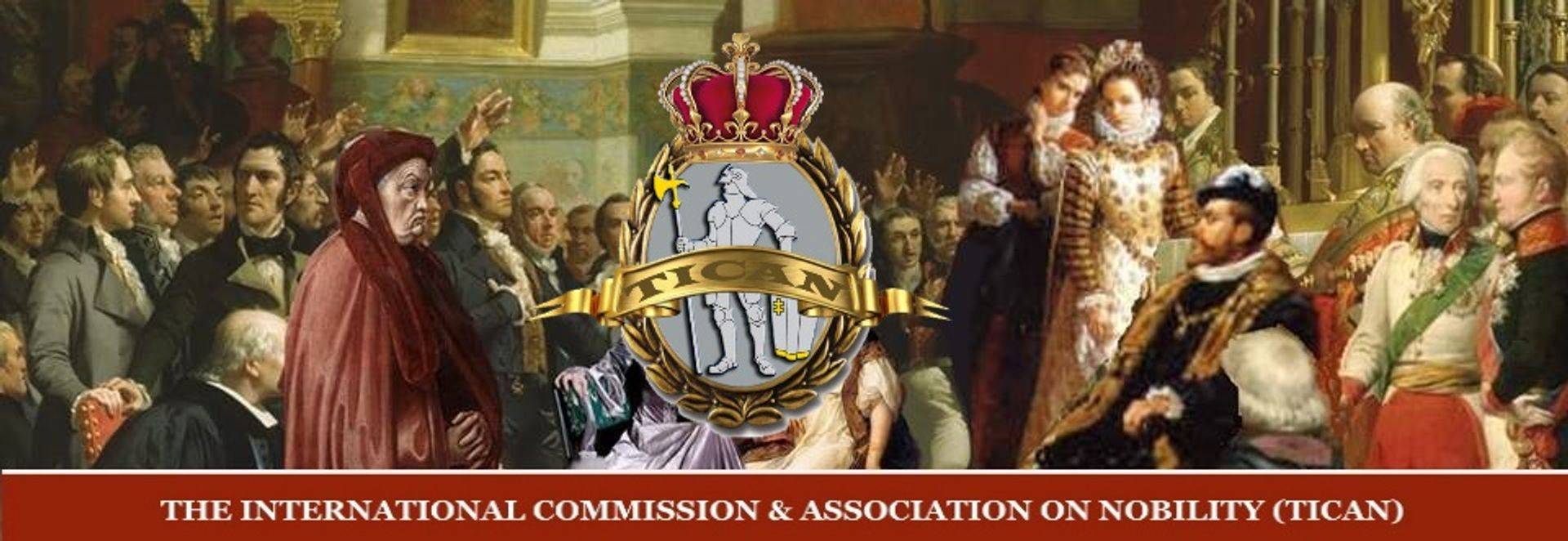
Title

PREAMBLE
The International Commission and Association on Nobility (TICAN), although a private apolitical body and ecumenical, has continually grown since its foundation in 2008 and it is been accepted worldwide as devoted to the preservation and promotion of the monarchical system of government and the principle of monarchy.
The Commission was founded, moreover, in order to associate world noble families for the purpose of fostering humankind historical values, noble traditions, and mutual solidarity and be consistent with the ethical code of conduct, as the sense of duty to their ancestors who were given noble titles for their merits. In compliance with its goals the Commission shall cooperate with individuals, religious, cultural, educational, scientific and other institutions, associations and societies which promote the same goals. The task of the Commission and Association is affiliation with European nobility associations in order to have recognized and evaluated world nobility history at international level.
The Commission`s systems and honors neither register no certifies grants, nobility or arms for members. The Commission does not render opinions as to the legitimacy of specific titles of nobility claimed by this or that person. It often arise that one publisher or fount of honor "recognizes" a certain person's title while another does not.
One of the characteristics of TICAN environment is loyalty and unity: loyalty to other members of the Commission, loyalty to the system of rank structure, and loyalty to the values possessed by the commission.
The concession of a noble title is not the prerogative of the State, rather they are granted in virtue of the merits recognized the person by power, prerogative, the crown and the discretion of the Pretender Prince to the throne who holds the Fons and Jus Honorum. This concept has always been followed by Reigning Dynasties who lost their throne further to final occupation of the land and, therefore, without debellatio, and therefore the figure of the Pretender prince arose.
Organizations create Divisions, and then expect collaboration. The Nobiliary Council Board is a subcommittee of the International Commission and Association on Nobility (TICAN) consisting of the Chairman, the Vice Chairman, the Secretary and three or more executive representatives elected by the Council from the members or outside the Commission (E.g.: Historians, Heralds and Genealogists).TICAN´s President serves as the Chairman of the Council and the Executive Secretary serves as Vice Chairman of the Council.
The Nobiliary Council is to direct and review the general affairs of the Commission for “Nobility Membership” within the limits set forth in the Commission’s Bylaws. Potential prospects considering to apply for membership should hold a title of nobility, which is backed by solid evidence.
STATUTES AND REGULATIONS
TICAN NOBILIARY COUNCIL
Membership in the class of nobility is for those holding a title of nobility and or who are members of a legitimate Hereditary Order of Chivalry. Potential prospects considering to apply for membership should hold a title of nobility, which is backed by solid evidence. Honorific Order of Chivalry is not a noble title. An "undisputed legitimate descent" isn't only a matter that concerns the ancient nobility, but also individuals potentially descending from lesser known or otherwise obscure noble families, of which there are many.
This Nobiliary council shall be governed by the Constitution, Bylaws, Code, Regulations and edicts of the International Commission and Association on Nobility (TICAN).
ARTICLE I
THE COUNCIL
- The Council shall have full power to direct and review the general affairs of the Commission for “Nobility Membership” within the limits set forth in the Commission’s Bylaws. The Council is the legislative and policy body for the Commission and Association on Nobility issues.
- The results of the investigation whether positive or negative will be not being made public. The information will only be shared with a few key individuals who keep confidential information and private.
- Should the Council find some problems in this investigation process, the council will share among them in the hope of clarifying whatever is ascertained.
- At any time during this research, the prospect individual may withdraw the application for the “Nobility Membership” or change it to “Titular Member” as desired which is the largest of the Organization, is open to worthy individuals who support the ideals of chivalry and nobility. Provided, always, that such candidates are of excellent character and are considered qualified and worthy by the officers of the Commission.
- Council discussed and approved a motion to distribute agendas and minutes via e-mail.
- Resolutions can be withdrawn or cancelled at the same meeting by following the same procedure that applies for moving and adopting a resolution.
- The Nobiliary Council shall decide and be responsible for Certificate Membership upon the recommendation of the Nobiliary Board.
ARTICLE II
DUTY
- This duty is very broad, requiring officers and directors to exercise ordinary and reasonable care in the performance of their duties, exhibiting honesty and good faith.
- Officers and directors must act in a manner which they believe to be in the best interests of the association, and with such care, including reasonable inquiry, as an ordinarily prudent person in a like position would use under similar circumstances.
- The "nobiliary judgement rule" protects officers and directors from personal liability for actions made in poor judgment as long as there is a reasonable basis to indicate that the action was undertaken with due care and in good faith.
ARTICLE III
DUTY OF LOYALTY
- The officers and directors must give undivided allegiance to the association when making decisions affecting the association. In other words, officers and directors cannot put personal interests above the interests of the association. Personal interests may include outside business, professional or financial interests, interests arising from involvement in other organizations, and the interests of family members, among others.
- Officers and directors should be careful to disclose even potential conflicts of interest to the board of directors, and should recuse themselves from deliberation and voting on matters in which they have personal interests.
- Occasionally, a board member needs to be removed from the board. In some cases, a conflict of interest or unethical behavior may be grounds to remove an individual from the board. In other cases, the behavior of a board member may become so obstructive that the board is prevented from functioning effectively.
ARTICLE IV
COAT OF ARMS ADOPTED BY THE NOBILIARY COUNCIL


The choice of the Nobiliary Council´s symbol is similar to TICAN: an oval gold shape surrounded by a proud laurel wreath combine to a striking design that brings out the strength and vitality in the logo. The crown on top of the oval shape represent the legacy of the old Noble families spreading now all over the world while in the center a Knight is based on the ideals of chivalry, nobility, aristocracy and for the Defense of International Nobility.
ARTICLE V
MOTTO OF THE INTERNATIONAL COMMISSION AND ASSOCIATION ON NOBILITY
VIRTUS UNICA NOBILITAS- (Virtue is the only Nobility)
ARTICLE VI
NOBILIARY SEAL
The Nobiliary Council seal shall be as follows:

ARTICLE VII
FUNDING THE ASSOCIATION'S ACTIVITIES
The Association shall be funded through:
• Membership fees
• Sponsors and donors
• Other sources, in accordance with the Law
ARTICLE VIII
NOBILITY MEMBERSHIP
Nobility of the family is proved by a copy of the charter and of adequate texts from different nobiliary books, biography lexicons and other historical sources. That the applicant belongs to that family is proved by birth certificates for at least three consecutive generations of his/her ancestors in whose certificates of baptism must be stated the nobiliary title, or alternatively by birth certificates of his/her immediate ancestors in a line, up to that ancestor who is mentioned for the first time in a historical source as a nobleman, with the description of circumstances stating who, when and for what merits nobility was granted to him/her or to any of his/her ancestors. The family tree must be attached.
Procedure to request Nobility Membership
- A Letter (or fill the application form) to the Nobiliary Council requesting admission.
- Complete Curriculum Vitae (CV) of the applicant.
- Proof of nobility or hereditary knighthood. (That one is true member of the nobility or a recognized member of a royal family, or that one is a true knight, baron, prince or some other genuine title of nobility or royalty).
- Coat of Arms of the applicant.
- Download application. (Printable version).
- Send application electronically to: commission-nobility@gmail.com
- The electronic signature constitutes a legal and binding application agreement.
The Nobiliary Council verifies the submitted application (if necessary asks for completion), fulfills the questionnaire for new members and writes his/her opinion, later the application is presented to the Board and if they determine that the membership qualifications are met.
Rights and obligations of permanent members are:
- To promote the goals of the Association.
- To participate in the work of the Association.
- To be informed of the Association’s activities.
- To suggest and encourage the work of the Association.
- To evaluate and appraise the work of the Association.
- To preserve the honor, dignity, reputation and interests of the Association.
- To perform tasks set up by the Statute and Decisions of the Executive Bodies of the Association.
- To be allowed to use the coat of arms of the Nobility Membership on their private business cards.
- To pay the initiation fee, membership fee and other dues according to the decisions of the relevant bodies of the Association.
- To inform the Nobiliary Board on every change of address or any other change of personal data.
The membership in the Association ceases by:
- Death.
- Voluntary resignation submitted in writing to the Nobiliary Board.
- Overdue membership obligations for two years.
- A final judgment for the criminal offence which is contrary to the moral principles of the Association (honesty, patriotism).
- Presenting themselves under a false name and forged identification documents to prove nobility, and forgery of personal data.
- If sectarianism is introduced in the Association.
- If a member’s speech, work, behavior in public life is against the goals of the Association.
- Change of a regular member’s surname.
Disciplinary Measures
- A member of the Nobility Membership who violates his/her membership obligations and duties is committing a disciplinary infringement and shall be responsible before the Nobiliary Council on the basis of the testimonies of the members and evaluation of evidence.
- Disciplinary measures for minor offences are warning and reprimand, issued by the Nobiliary Board, and disciplinary measure for serious offences is expulsion - proposed by the Nobiliary Board and decided by the Nobiliary Council.
- Minor offences are unjustified not completing the planned obligations, unpaid membership fee for one year.
- Serious offences are repetition of minor offences, overdue membership obligations for two years and acting against the interests, goals and programme of the Association.
ARTICLE IX
ASSOCIATE AND HONORARY MEMBERS
Associate and Honorary members can be admitted into the Association after the proposal of the Nobiliary Board and having confirmed that the proposed members can contribute or have already contributed to the promotion of the goals of the Association. If these persons possess the necessary expertise and social reputation, and if they accept the membership, The Nobiliary Board completes the procedure by granting them the status of an Associate or Honorary Member.
Rights and obligations of Associate and Honorary members are:
- To promote the goals of the Association.
- To participate in the work of the Association.
- To have the right to elect or to be elected to the bodies of the Association.
- To be granted the membership charter, membership card and badge of the Association.
- To be informed about the Association’s activities.
- To put forward proposals and to encourage the work of the Association.
- To evaluate and appraise the work of the Association.
- To preserve the honor, dignity, reputation and interests of the Association.
- To perform tasks established by the Statute and decisions of the executive bodies of the Association.
- To Inform the Nobiliary Board of every change of address, residence , domicile, or family name, and any other change of personal data
The Secretary of the Nobiliary Council must provide a biography for every associate and honorary member.
ARTICLE X
MEMBERSHIP FEE
- Regular members shall pay the annual membership fee in the amount determined by the Nobiliary Board. Associate members participate with their annual contribution in the settlement of obligations according to their possibilities, the lowest amount being that paid by the regular members.
- Honorary members are exempt from membership fee and contribution. Donors who participate with a one-off contribution for the financial needs of the Association receive a Certificate of gratitude in writing, or in the form of a charter, depending on the amount of their contribution.
ARTICLE XI
These Regulations enters into force immediately after its adoption at the session of the Nobiliary Board on the October 02, 2016.
Signatures:

